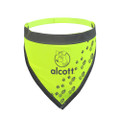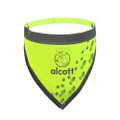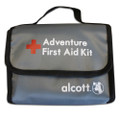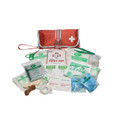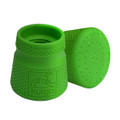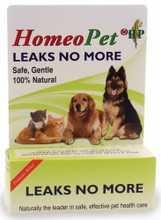 Loading... Please wait...
Loading... Please wait...Categories
Join Our Mailing List
- Home
- Dog Corner
- Health & Wellness
- HomeoPet Leaks No More
Product Description
Homeopathic remedy provides relief for urinary incontinence or leaking that occurs in older pets, and spayed females/neutered males.
DOGS/CATS: Under 20 lbs/10 kg, 5 drops; 21-60 lbs/ 10-30 kg, 10 drops; 61-100 lbs/ 30-45 kg, 15 drops; over 100 lbs/45 kg, 20 drops.
In acute cases (those with sudden onset), the doses can be given every 15 minutes, up to 4 doses.
For cases that are not acute (chronic, long term problems), one dose 3 times daily.
Once a response is seen, administration should be reduced to 2 times daily and eventually once daily. If reduction causes symptoms to worsen, original dosing may be continued a little longer before reducing. If a remedy is working well and dosing is not reduced, an aggravation of symptoms from overuse may occur. Stopping the remedy for 3 days will reverse the symptoms, and then treatment can begin as if using for the first time, weaning down as mentioned above.
Under 1 lb: All pets under 1 lb should be dosed by putting 2 drops in the drinking water daily.
SMALL MAMMALS: Rabbits, ferrets, hamsters and pot bellied pigs can be dosed by weight as for cats and dogs in previous section.
For severe cases a drop can be diluted in 1 ml of water or other oral rehydration fluid and given to the patient orally, taking care to avoid aspiration of the fluid into the respiratory tract by the patient. 3 doses whose volume is appropriate to the size of the patient should be given from the diluted product over a 24 hour period, e.g. 2 drops for a mouse or small budgie, 4 drops for a large guinea pig. For acute cases it can be repeated as for cats and dogs in previous dosing section.
YOUR PET'S SYMPTOMS
|
POSSIBLE CAUSES
|
SUGGESTED REMEDYLeaks No More(Liquid Drops) |
ADMINISTRATION:
Optimally, the liquid preparation should be dropped directly into the mucous membrane of the mouth including lips; ideally in dogs by pulling out the labial pouch, and in cats by raising the head until the mouth opens. Where an animal finds this distressful, or an owner is unable to comply, the medication can be put in the food, water or milk. Where animals are sensitive to the odor of the alcohol preservative, a 10-20 minute period should be allowed for dilution and evaporation before the liquid or food is presented to the patient. Occasionally, animals will shake their heads as a response to the alcohol preservative; cats may salivate excessively and in these cases, presenting it in food, water or milk works. It can also be added to a sprayer and misted in the air around severely affected patients to calm them down, or dropped around bedding area 3-5 times daily.
Product Videos
-
 HomeoPet Leaks...HomeoPet Leaks No More; Homeopathic remedy provides relief for...
HomeoPet Leaks...HomeoPet Leaks No More; Homeopathic remedy provides relief for...


